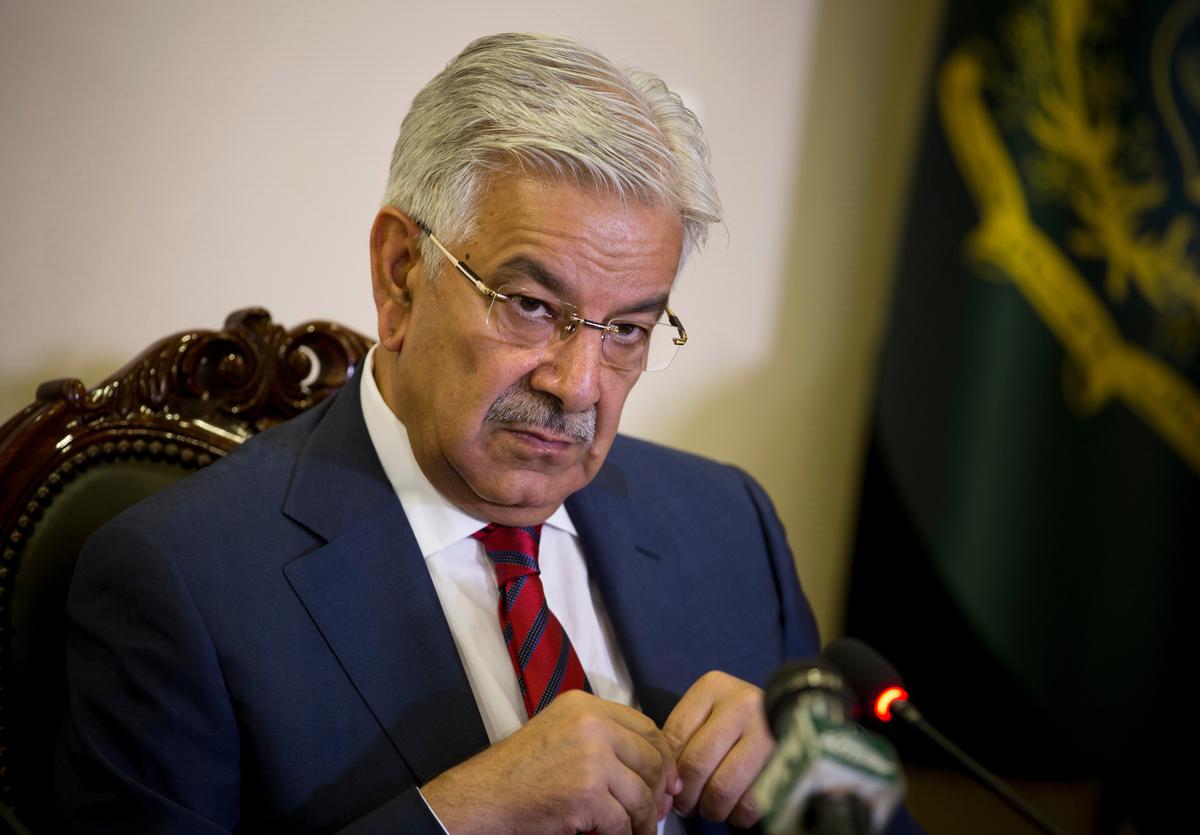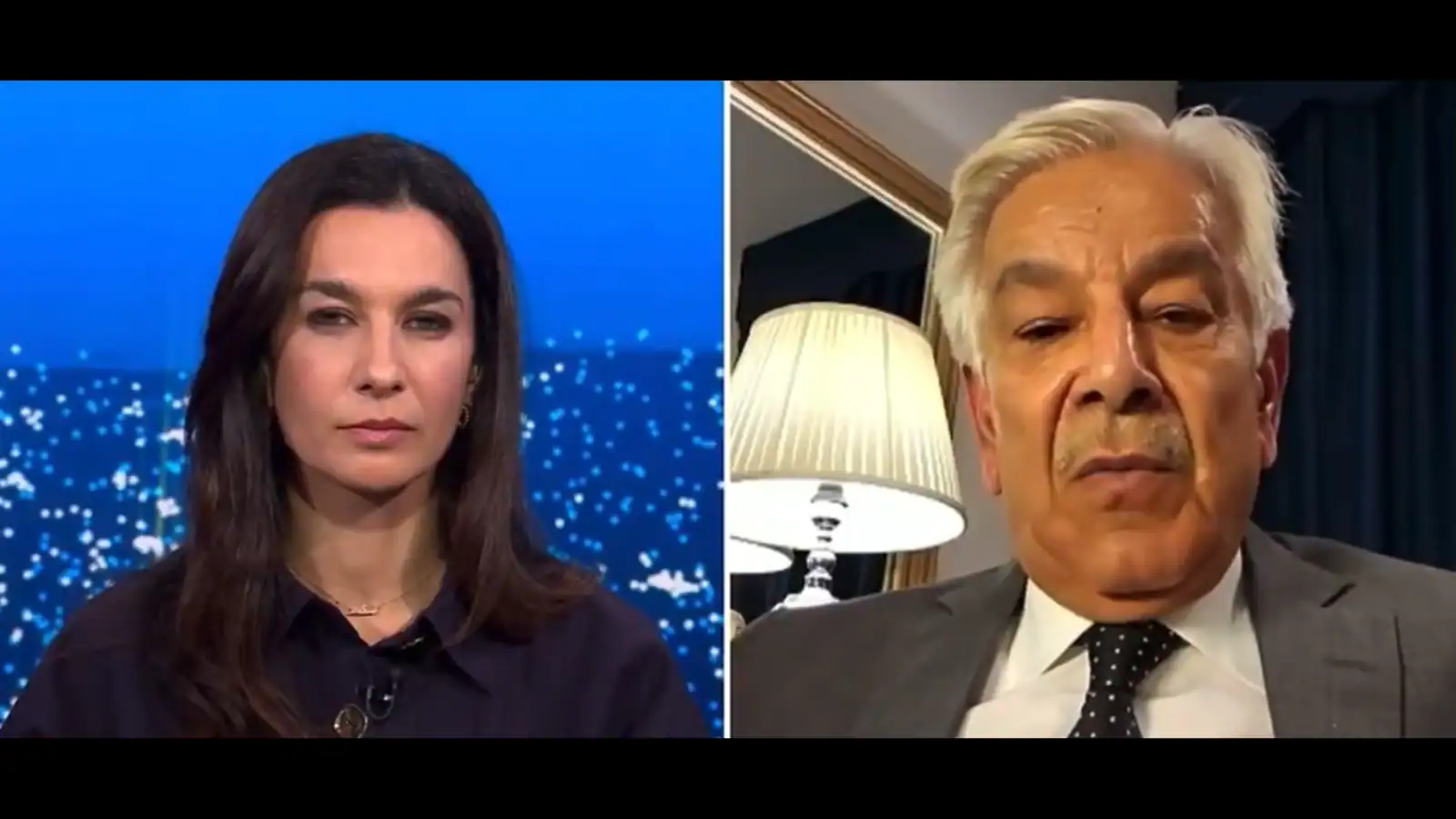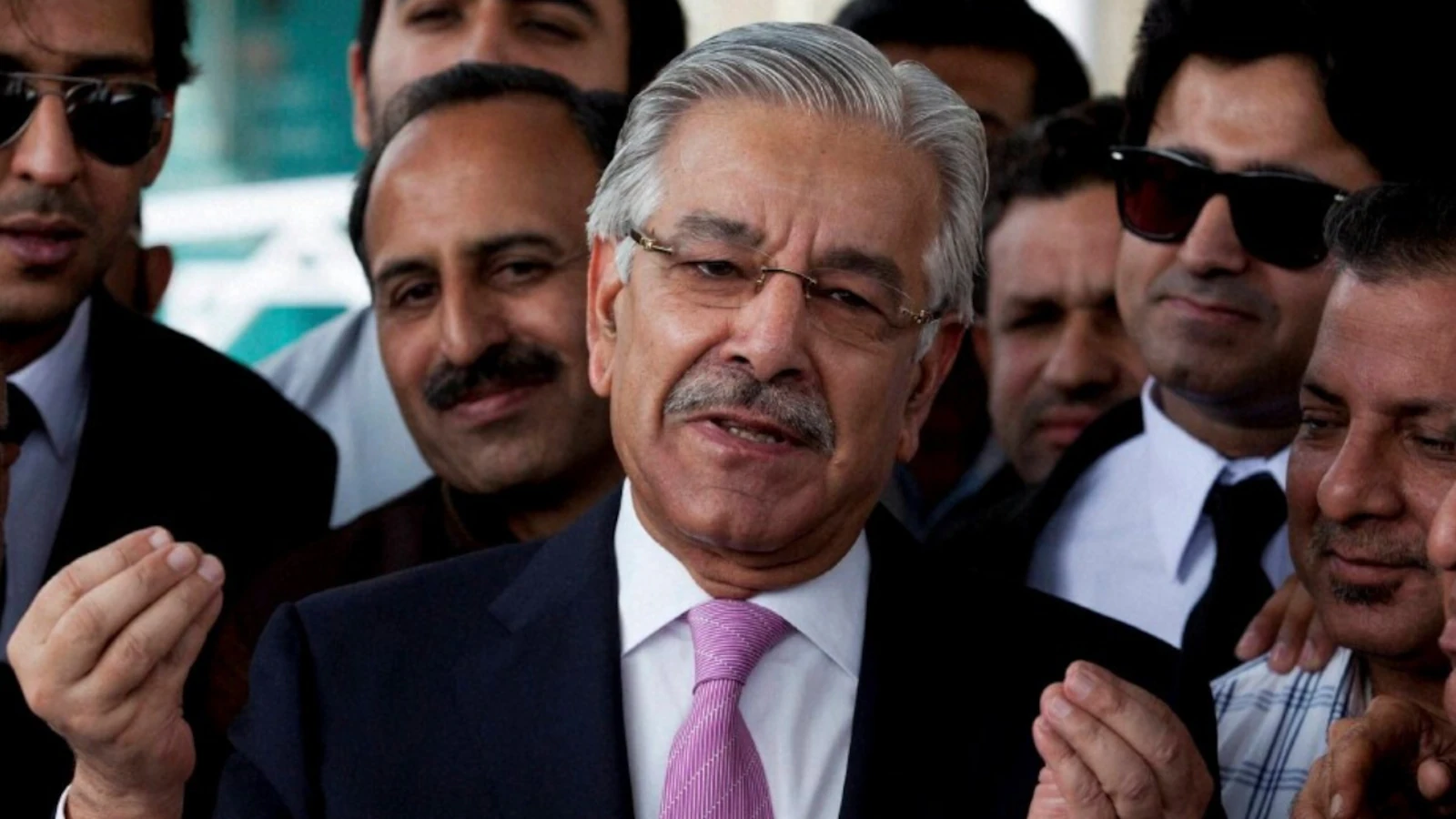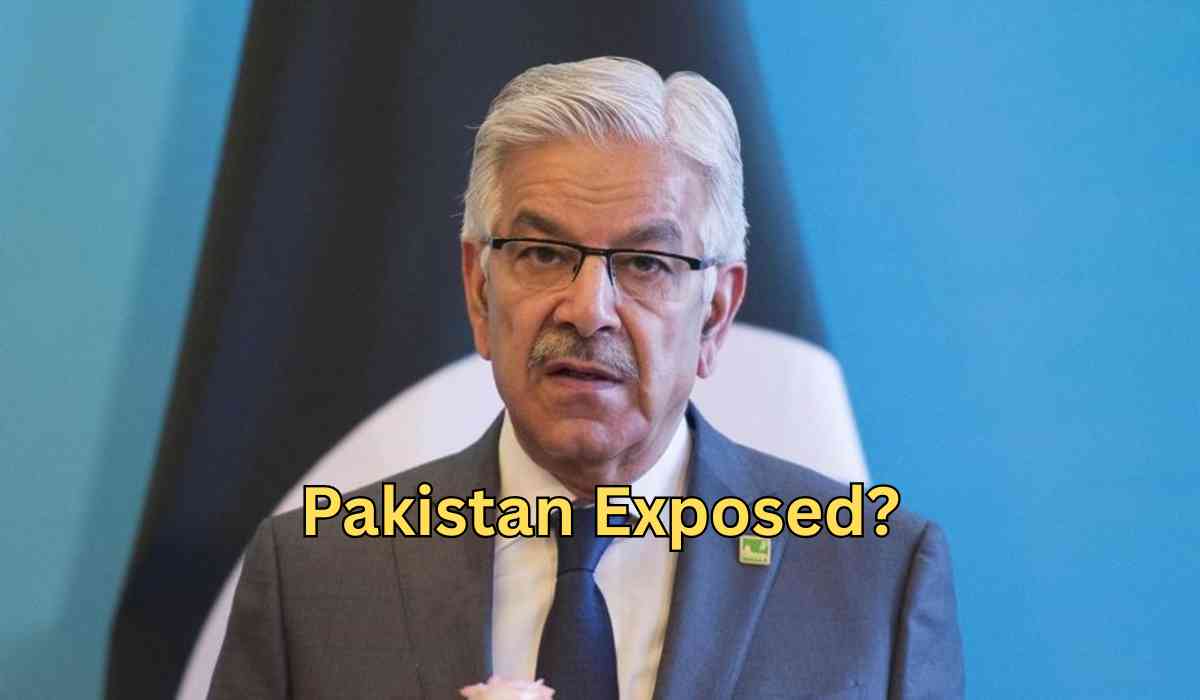In a damning and highly controversial admission, Pakistan’s Defence Minister Khawaja Muhammad Asif publicly acknowledged that Pakistan had been supporting and funding terrorist organizations for over three decades, largely at the behest of the United States and its Western allies. The admission came during a televised interview with Sky News and has further escalated tensions between India and Pakistan, especially in the aftermath of the recent terror attack in Pahalgam, Jammu and Kashmir, which left 26 civilians dead.

Khawaja Asif’s Explosive Admission on Terror Funding
In an interview with British broadcaster Sky News, Defence Minister Khawaja Asif was directly questioned about Pakistan’s alleged history of backing and funding terrorist groups. In response, he admitted:
"We have been doing this dirty work for the United States for the past three decades, including the West and the United Kingdom."
He further added:
"That was a mistake, and we are suffering from that."
He argued that Islamabad’s international record would have been “unimpeachable” had it not joined the US during the Soviet-Afghan War and later the post-9/11 invasion of Afghanistan.
Pakistan's defence minister has told Sky News that a row over a mass shooting in Kashmir could lead to an "all-out war"
Speaking to @SkyYaldaHakim, Khawaja Asif suggested India had "staged" the shooting.
Full interview: https://t.co/jvth4a0Umv pic.twitter.com/jVhFmjN4ij— Sky News (@SkyNews) April 24, 2025
Historical Context: Pakistan’s Role in Proxy Wars
-
Soviet-Afghan War (1979-1989): Pakistan trained and sheltered militants to fight the Soviets, acting as a key ally for the US due to its porous border with Afghanistan.
-
Post-9/11 War on Terror: After 9/11, Pakistan again became a key partner for the US in its war against the Taliban and al-Qaeda in Afghanistan. Osama bin Laden’s al-Qaeda, which was sheltered by the Taliban, orchestrated the 9/11 attacks that killed 2,996 people in the US.
Pakistan’s cooperation continued during the US-led invasion of Afghanistan, though it simultaneously nurtured terror groups targeting India. Asif emphasized that these involvements have led to Pakistan’s current troubles, including being perceived globally as a sponsor of terror.
The Pahalgam Terror Attack: 26 Civilians Massacred
The timing of Asif’s admission is especially critical, coming just days after a deadly terrorist attack in the Baisaran Valley near Pahalgam, a major tourist destination in Jammu and Kashmir. On April 22, 2025, terrorists opened fire on unarmed tourists, killing 26 innocent civilians.
Who Was Behind the Attack?
-
The Resistance Front (TRF): An offshoot of the Lashkar-e-Taiba (LeT), claimed responsibility.
-
LeT Link: TRF is widely believed to be controlled by LeT, which is led by Hafiz Saeed—the mastermind behind the 26/11 Mumbai attacks.
-
Terrorist Group Composition: Indian security sources revealed that the Pahalgam attack was carried out by a hardened group of mostly foreign terrorists, with support from local militants and overground workers in Kashmir.
Other Recent LeT-Linked Attacks in Jammu and Kashmir
-
Boota Pathri (October 2024): Four people, including two Indian Army personnel, were killed.
-
Sonamarg (October 2024): A deadly attack on tunnel construction workers resulted in the deaths of six labourers and a doctor.
Hashim Musa, one of the key accused in the Pahalgam massacre, is also believed to be involved in this attack.

Denials and Deflections by Pakistan
Despite mounting evidence, Khawaja Asif made several controversial and contradictory claims during his interview:
-
Denial of Lashkar-e-Taiba’s Existence: Despite the group being designated as a terrorist organization internationally, Asif declared,
“Lashkar is a name from the past. It does not exist,”
-
Disavowal of The Resistance Front: He insisted that the Pakistani government had never heard of TRF and claime d,
“This whole thing was staged to create some sort of crisis in the region, particularly for us.”
“Never heard of that organisation. Our government has condemned it categorically.”
-
Rejection of Responsibility: He argued that Pakistan was the victim of terrorism, not its sponsor, and accused India of staging the Pahalgam attack to escalate regional tensions.
He dismissed India’s reactions as staged:
“The reaction that came from Delhi was not surprising for us; we could make out that this whole thing was staged to create some sort of crisis in the region, particularly for us.”
These statements were made despite TRF’s public claim of responsibility and its well-documented ties to LeT.

India’s Firm Diplomatic and Strategic Response
In the wake of the Pahalgam terror attack and Asif’s inflammatory remarks, India took swift and severe diplomatic action against Pakistan.
Measures Announced by India:
-
Closure of the Integrated Check Post (ICP) at Attari
-
Suspension of the SAARC Visa Exemption Scheme (SVES) for Pakistani nationals, requiring them to return within 40 hours
-
Reduction in high commission staff on both sides
-
Halting of the Indus Waters Treaty signed in 1960
Pakistan’s Retaliation
In retaliation, Pakistan suspended all bilateral agreements with India, including the 1972 Simla Agreement, further deepening the standoff.
This move further strained relations between the two nuclear-armed neighbours.
Nuclear Tensions and Warning of “All-Out War”
Perhaps the most alarming statement from Asif during the interview was his open warning of a potential “all-out war” with India.
“We will measure our response to whatever is initiated by India… If there is an all-out attack or something like that, then obviously there will be an all-out war.”
When asked whether the international community should be concerned, Asif replied:
“Yes, I think so. The clash between two nuclear powers is always worrisome.”
While he expressed hope that the crisis could be resolved through dialogue, his rhetoric only fueled concerns of a potential large-scale conflict in South Asia.
Prime Minister Modi’s Stern Warning
In response to the Pahalgam massacre, Prime Minister Narendra Modi issued a strong statement, vowing retribution and intensified counter-terrorism measures:
“The terrorists responsible for this attack, along with those who conspired it, will face punishment beyond their imagination. The time has come to eliminate the remaining strongholds of terrorism.”
He also emphasized that the resolve of 140 crore Indians will break the backbone of terrorism.
Khawaja Asif’s rare admission of Pakistan’s involvement in supporting terror groups, coupled with denial and deflection around current events, has further strained India-Pakistan relations. The brutal Pahalgam attack has reignited global concern over the stability of the region, especially given the presence of nuclear weapons on both sides. As tensions mount and diplomatic bridges burn, the road ahead seems perilous unless both nations find a way to de-escalate and collaborate on eliminating terrorism from the region once and for all.
With inputs from agencies
Image Source: Multiple agencies
© Copyright 2025. All Rights Reserved Powered by Vygr Media.


















